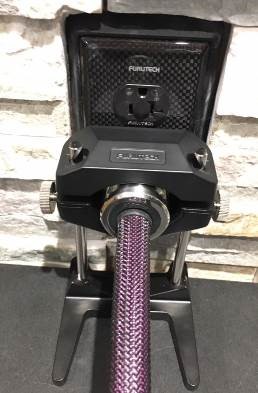H
Hardingfele
Gjest
Glenn Gould pleide øve pianospill med støvsugeren på. Billigere enn å betale 60 for VDs seneste påfunn. Jeg har markert det som er relevant for alt tweak-tøys.
"Somehow, I cannot help thinking of something that happened to me when I was thirteen or fourteen... I happened to be practising at the piano one day – I clearly recall, not that it matters, that it was a fugue by Mozart, K. 394, for those of you who play it too – and suddenly a vacuum cleaner started up just beside the instrument. Well, the result was that in the louder passages, this luminously diatonic music in which Mozart deliberately imitates the technique of Sebastian Bach became surrounded with a halo of vibrato, rather the effect that you might get if you sang in the bathtub with both ears full of water and shook your head from side to side all at once. And in the softer passages I couldn't hear any sound that I was making at all. I could feel, of course – I could sense the tactile relation with the keyboard, which is replete with its own kind of acoustical associations, and I could imagine what I was doing, but I couldn't actually hear it. But the strange thing was that all of it suddenly sounded better than it had without the vacuum cleaner, and those parts which I couldn't actually hear sounded best of all. Well, for years thereafter, and still today, if I am in a great hurry to acquire an imprint of some new score on my mind, I simulate the effect of the vacuum cleaner by placing some totally contrary noises as close to the instrument as I can. It doesn't matter what noise, really – TV Westerns, Beatles records; anything loud will suffice – because what I managed to learn through the accidental coming together of Mozart and the vacuum cleaner was that the inner ear of the imagination is very much more powerful a stimulant than is any amount of outward observation".
"Somehow, I cannot help thinking of something that happened to me when I was thirteen or fourteen... I happened to be practising at the piano one day – I clearly recall, not that it matters, that it was a fugue by Mozart, K. 394, for those of you who play it too – and suddenly a vacuum cleaner started up just beside the instrument. Well, the result was that in the louder passages, this luminously diatonic music in which Mozart deliberately imitates the technique of Sebastian Bach became surrounded with a halo of vibrato, rather the effect that you might get if you sang in the bathtub with both ears full of water and shook your head from side to side all at once. And in the softer passages I couldn't hear any sound that I was making at all. I could feel, of course – I could sense the tactile relation with the keyboard, which is replete with its own kind of acoustical associations, and I could imagine what I was doing, but I couldn't actually hear it. But the strange thing was that all of it suddenly sounded better than it had without the vacuum cleaner, and those parts which I couldn't actually hear sounded best of all. Well, for years thereafter, and still today, if I am in a great hurry to acquire an imprint of some new score on my mind, I simulate the effect of the vacuum cleaner by placing some totally contrary noises as close to the instrument as I can. It doesn't matter what noise, really – TV Westerns, Beatles records; anything loud will suffice – because what I managed to learn through the accidental coming together of Mozart and the vacuum cleaner was that the inner ear of the imagination is very much more powerful a stimulant than is any amount of outward observation".





